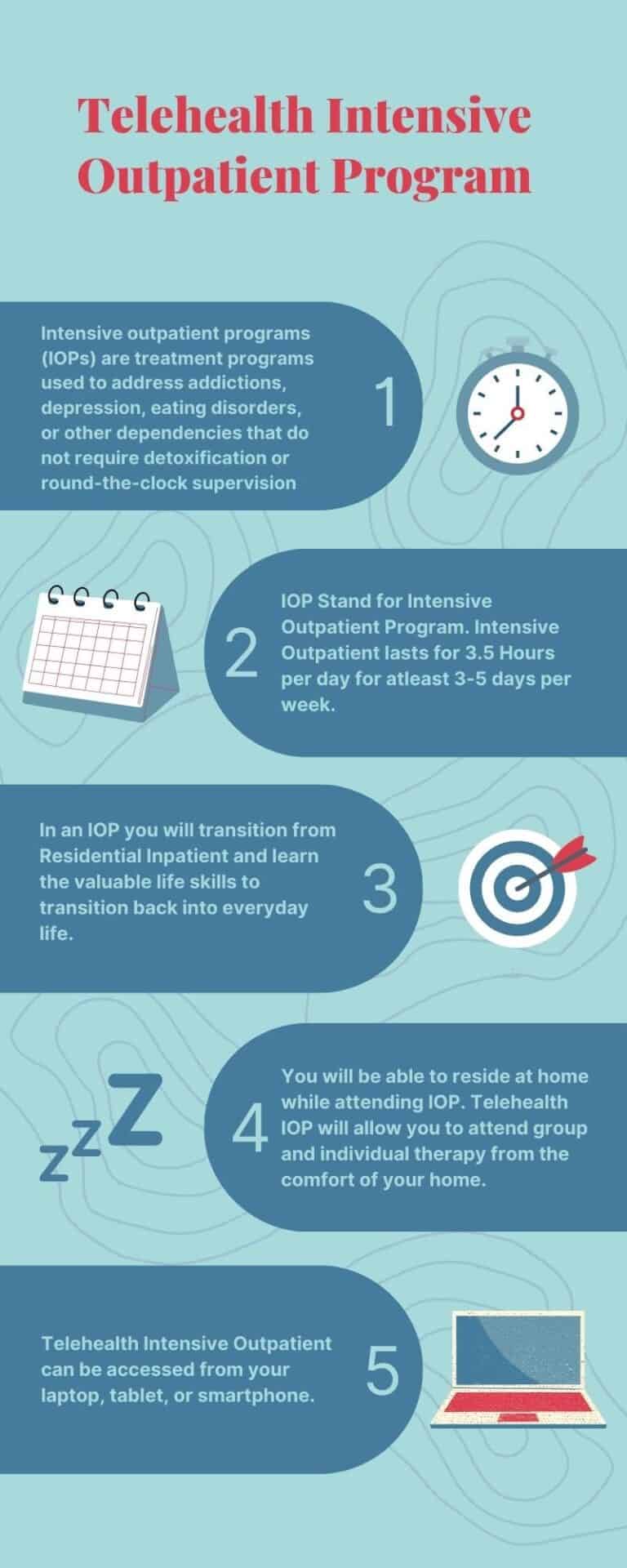Comprehensive Guide to Picking the Right Intensive Outpatient Program (IOP).
Comprehensive Guide to Picking the Right Intensive Outpatient Program (IOP).
Blog Article
Navigating the Complexities of Dual Diagnosis Treatment Within an Extensive Outpatient Program Setting
In the realm of psychological health and dependency therapy, the intersection of twin medical diagnosis provides a nuanced difficulty that requires an extensive and tailored technique. By exploring the ins and outs of twin diagnosis treatment within this extensive outpatient context, a more clear path emerges towards holistic and sustainable healing for those grappling with these intertwined difficulties.
Double Diagnosis Introduction
What is the importance of comprehending dual diagnosis in psychological wellness therapy? It is critical to identify and address this comorbidity as it can substantially influence the effectiveness of psychological health and wellness treatment.
Comprehending dual medical diagnosis is necessary as it requires a comprehensive and incorporated approach to therapy. By acknowledging the interaction between material use and psychological health and wellness, healthcare providers can customize interventions to satisfy the unique demands of each individual. This all natural approach not just addresses symptoms however also targets underlying variables that contribute to the twin diagnosis.
In addition, neglected twin diagnosis can cause a cycle of regression and intensifying psychological health signs. By identifying the complexity of double medical diagnosis and providing specific care, health care experts can sustain people in achieving long-lasting recuperation and improved mental wellness.
Tailored Therapy Strategies
Recognizing the elaborate interaction in between material use disorders and mental wellness problems, the development of tailored treatment plans is vital in resolving the intricacies of dual diagnosis in mental health and wellness treatment. Tailored therapy strategies are individualized methods that take into consideration the unique needs, challenges, and goals of individuals facing dual diagnosis. These plans are developed collaboratively by a multidisciplinary team of experts, including psychiatrists, psychologists, social workers, and addiction specialists, to ensure comprehensive and integrated treatment.
Tailored therapy strategies commonly entail a mix of therapies, medicines, and behavioral interventions that target both the material usage problem and the psychological health and wellness condition simultaneously. These plans might consist of cognitive-behavioral therapy, dialectical behavior modification, medication-assisted therapy, specific counseling, group treatment, and family members treatment, among other evidence-based treatments. By personalizing treatment approaches to specific scenarios, tailored plans can resolve the origin of dual medical diagnosis, promote long-term recovery, and boost general quality of life for people having a hard time with co-occurring conditions.
Integrated Care Technique

By integrating social interventions like household therapy, employment assistance, and neighborhood sources, the therapy ends up being a lot more alternative and customized to the individual's particular requirements. In general, an integrated care visit here approach in dual diagnosis therapy within an extensive outpatient program setup intends to offer extensive, efficient, and personalized care to people encountering co-occurring conditions (Intensive Outpatient Program (IOP)).
Difficulties in IOP Setting
In the context of dual medical diagnosis therapy within an extensive outpatient program, navigating the complexities of co-occurring material usage conditions and mental wellness problems provides significant challenges. Among the main hurdles in the IOP setup is the control of care between mental wellness experts and material abuse professionals to guarantee a thorough treatment strategy. This calls for effective interaction, collaboration, and a deep understanding of just how these conditions engage and influence each other.
Moreover, the changing nature important usage problems and mental health and wellness problems adds one more layer of intricacy - Intensive Outpatient Program (IOP). Clients in an IOP might experience sudden shifts in their signs or substance food cravings, requiring timely treatment and modification of therapy strategies. Stabilizing the strength of therapy and assistance while permitting customers the adaptability to handle their everyday duties can be a delicate equilibrium to keep
Additionally, dealing with stigma and resistance to therapy within the IOP setting can hinder progress. Some individuals might be reluctant to reveal their dual diagnosis or may really feel embarrassed, preventing their engagement in the therapeutic procedure. Getting over these obstacles requires a supportive and non-judgmental setting that fosters additional info count on and visibility.

Collaborative Specialist Initiatives

Joint initiatives additionally expand to regular interaction and info sharing among group participants to ensure a natural therapy method. Inevitably, an unified front of professionals working together boosts the efficiency of dual diagnosis treatment within an intensive outpatient program.
Verdict
In final thought, effective dual diagnosis treatment within an extensive outpatient program setting needs customized treatment strategies and an integrated care technique. Obstacles might develop in this setting, however collaborative initiatives amongst specialists can assist browse these complexities. By dealing with the special requirements of individuals with co-occurring mental health and substance utilize problems, IOP programs can supply detailed and holistic care to sustain recuperation and overall wellness.
Report this page